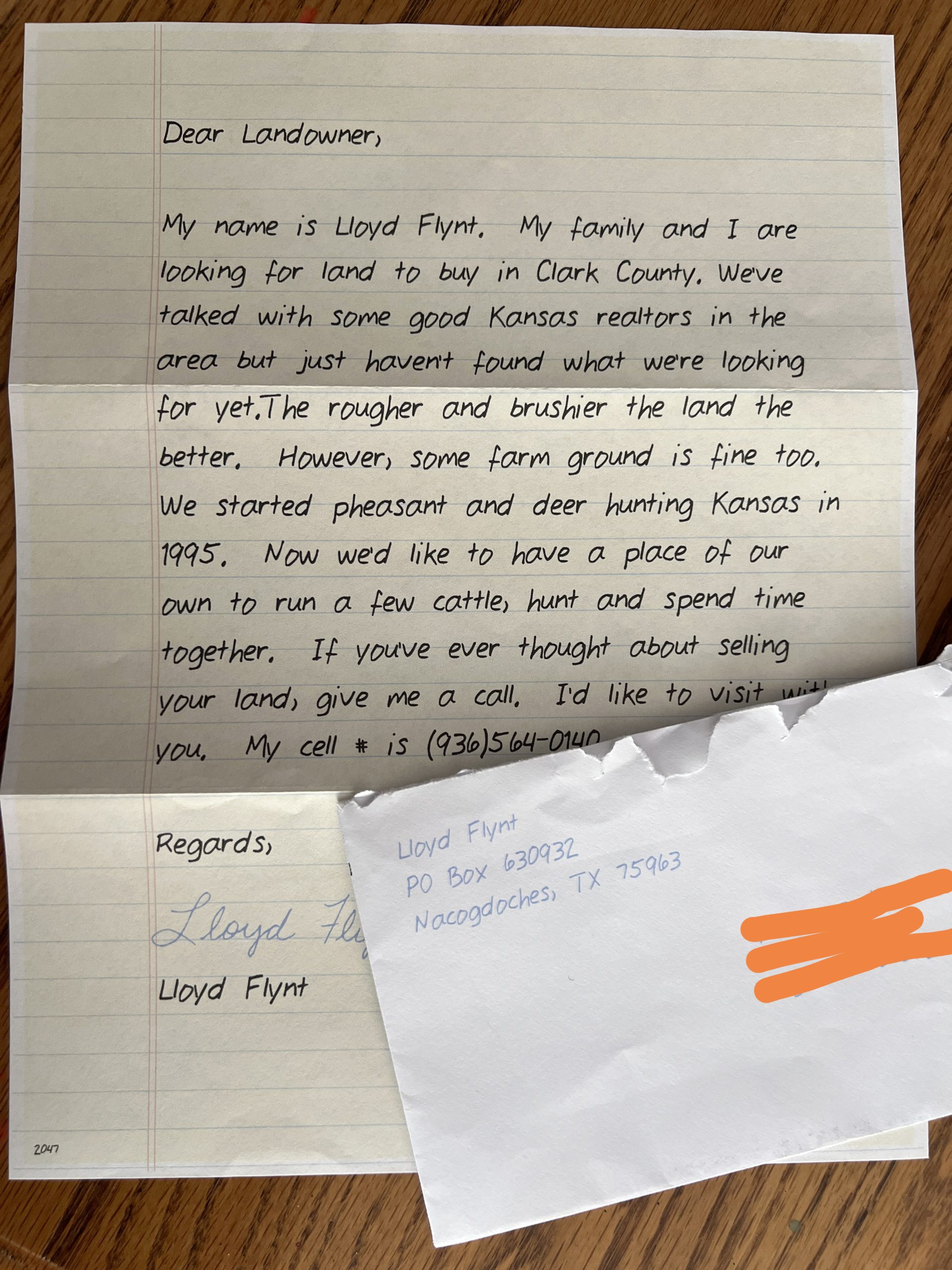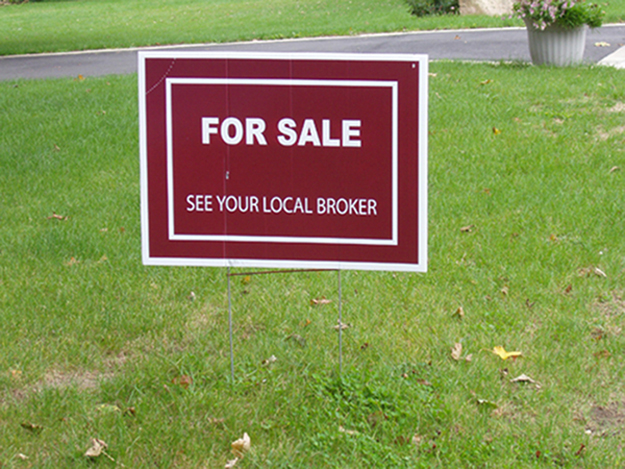E
very week I get mailers advertising real‑estate deals or parcels for sale nearby, and I toss them in the trash.
The last one came from Texas. It was styled to look handwritten, printed on yellow legal‑pad‑like paper, and it immediately irritated me.
The letter explained that a man named Lloyd is searching for land in Clark County. He says he’s spoken with several Kansas realtors but hasn’t found the right parcel. He writes, “The rougher and brushier the land the better. Some farm ground is fine too. We started pheasant and deer hunting in Kansas in 1995. Now we’d like a place of our own to run cattle, hunt, and spend time together.”
I realized my address is listed on the county website, so anyone with internet access can find landowners’ addresses. Companies pay for organized lists so they can target potential sellers and save on postage. That part isn’t the problem; the problem is that they lure people with promises of a quick sale or find owners who have no heirs interested in keeping the land.
I googled the name in the letter. All I found was an obituary and a cell number that matched the one in the letter, but the name was slightly different. Red flags appeared, so I photographed the letter and discarded it.
If these outsiders understood the effort it took us to acquire our land eight years ago, they might think twice before sending us a stamp‑filled mailer. Instead, they ignore that the land has been in the Scott family for over a century and simply want a hunting spot.
This frustration stems from how available land is often snapped up by developers or hunting enthusiasts. The language in many mailers focuses on creeks, deer populations, and “ideal hunting property,” not on pastures for cattle or farmland suitable for crops. A landowner who uses a property only a few days a year for recreation may let fences rot or buildings fall, while others recognize the income potential of agriculture and rent or farm the land.
Land ownership has a long history. The Homestead Act attracted many who worked hard to settle the country. Some couldn’t sustain it and left, but those who stayed hoped their labor would benefit future generations.
I fear future generations might fall prey to Lloyd’s tactics and sell land that has been in the family for generations. I hope my children and theirs can keep the family property.
Kylene Scott can be reached at 620‑227‑1804 or by email at [email protected].














